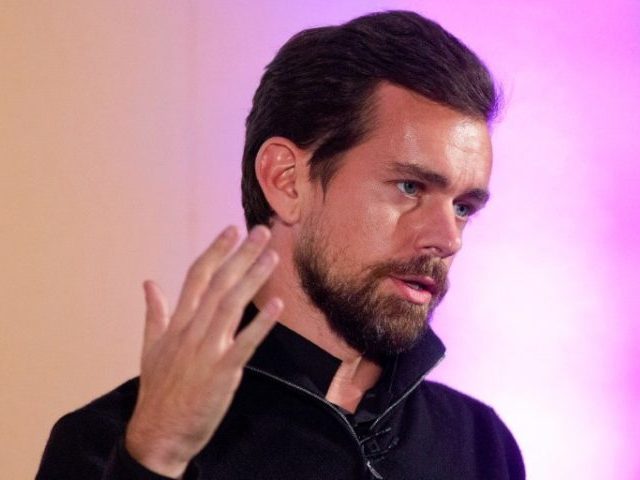Twitter CEO Jack Dorsey responded to users’ concerns regarding free expression and political bias on the platform during yesterday’s publicly-broadcast earnings call.
Dorsey said his goal was to create “civil discourse” on the platform, and said he wanted the enforcement of Twitter’s policies to be “consistent,” although he rejected arguments that the former goal conflicted with free speech.
The CEO’s comments, which are copied below, were made after the company’s #TWTR hashtag for user Q&As was flooded with questions from conservatives and supporters of Breitbart senior editor Milo Yiannopoulos, whose unjustified ban from Twitter has generated an ongoing protest movement against the company.
Dorsey and Twitter have yet to name Milo specifically in their comments, nor point to any specific rule-breaking tweet that caused his account to be suspended.
Krista Bessinger (Senior Director, Investor Relations):
Great. And we’ll take our next question from Twitter. A number of people have asked about recent developments regarding safety, and whether our approach to freedom of expression on the platform has changed. Can you please comment?
Jack Dorsey:
This is Jack. This is really, really important to me and to everyone at the company. So, I want to address both freedom of expression and safety together here, since the two intertwine.
We are not and never will be a platform that shows people only part of what’s happening or part of what’s being said. We are the place for news and social commentary. And at its best, the nature of our platform empowers people to reach across divides, and to build connections, to share ideas and to challenge accepted norms.
As part of that, we hope – and we also recognize it’s a high hope – to elevate civil discourse. And I emphasize civil discourse there. Abuse is not part of civil discourse. It shuts down conversation. It prevents us from understanding each other. Freedom of expression means little if we allow voices to be silenced because of fear of harassment if they speak up. No one deserves to be the target of abuse online, and it has no place on Twitter.
We haven’t been good enough at ensuring that’s the case, and we must do better. That means building new technology solutions, making sure our policies and enforcement are consistent, and educating people about both. We’ve made improvements in the first half of the year, and we’re going to make more. We named safety as one of our top five priorities for this year, and recent events have only confirmed that this is truly one of the most important things for us to improve, and has motivated us to improve even faster.
Jack Dorsey’s promise of “consistent” enforcement of Twitter’s policies is important, as it is the pledge that contrasts most starkly with the company’s actions. Open incitement to violence against police officers in the wake of the Baton Rouge and Dallas shootings has been allowed to remain on the platform, despite breaking one of Twitter’s oldest and most serious rules. Despite widespread coverage, many of the tweets calling for or celebrating violence remain hosted on Twitter.
Leslie Jones, the Ghostbusters actress whose report led to Milo’s suspension was allowed to incite harassment against another user — the same rule-violation that Milo was wrongly accused of — without repercussion. And a celebrity with over 1 million followers was allowed to bombard Breitbart reporter Jerome Hudson with racist tweets, again with no repercussions from Twitter.
These are just a few examples of Twitter’s uneven enforcement of its policies. If Jack Dorsey is serious about consistent enforcement, regardless of celebrity status or politics – and, for well-documented reasons, I expect he isn’t – then he has a very steep hill to climb.
Although it was heavily implied in his comments, Dorsey still didn’t directly say if he believes in free speech. Maybe we need to ask the question a few more times.
You can follow Allum Bokhari on Twitter, add him on Facebook. Email tips and suggestions to abokhari@breitbart.com.

COMMENTS
Please let us know if you're having issues with commenting.